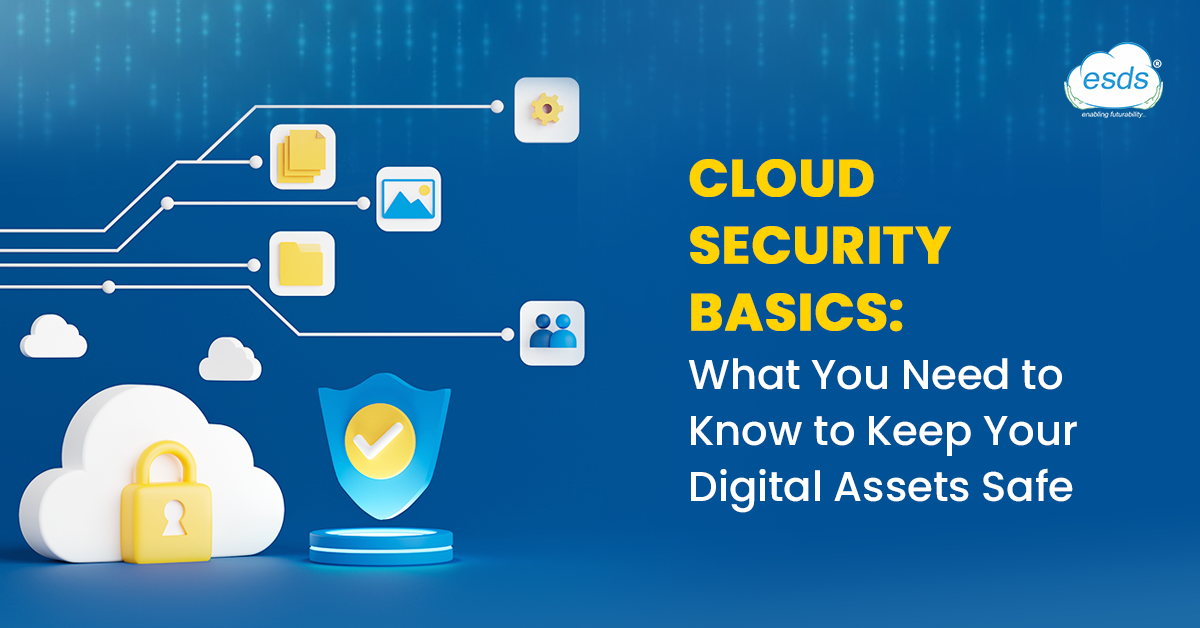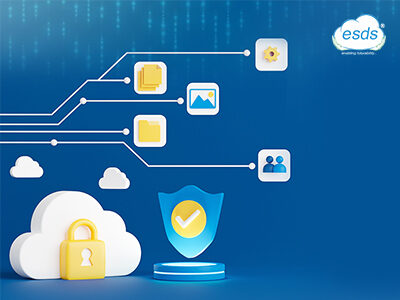Cloud Security Basics: What You Need to Know to Keep Your Digital Assets Safe
In today’s digital world, cloud security is a key component to staying safe online. With the ever-growing number of digital assets and applications, it’s important to ensure your data is protected from malicious cyber-attacks and unauthorized access. Cloud security basics are not only essential for protecting your business and personal data, but also for keeping your reputation intact. This guide will provide you with the necessary knowledge and understanding of what cloud security is, the different types of cloud security, and the steps you can take to ensure your digital assets are secure. With this knowledge, you can be sure that your online presence is safe and secure.

What is cloud security?
Cloud security is a broad term used to describe the steps and measures taken to protect your data while it’s being stored on a cloud server. A cloud server is a virtual server hosted on a remote data center that can be accessed via the internet. Cloud servers are often used for data storage and software applications, such as email and CRM Software. Cloud security basics are especially important for businesses that rely upon digital assets, such as SaaS Software, ERP Software, Communications Platforms, and CRM Software that require remote connectivity.

Types of cloud security
There are three main types of cloud security that are essential to understand before choosing a cloud provider. These are:
- Data encryption
- Authentication
- Access control
Data encryption is a process that scrambles your data and makes it unreadable so that only authorized users can view and access it. Authentication is the process of verifying the identity of a user or the device accessing your data. Access control is the process of granting or revoking permissions to your data based on the authentication of a user or device.
Benefits of cloud security
There are many benefits of cloud security, including cost efficiency, scalability, and flexibility. Cloud providers can host multiple data centers around the world, allowing your data to be stored in closer proximity. This can be helpful for businesses that need extra security, as it can be more difficult to hack a server that’s in a different jurisdiction. Cloud providers can also scale up their servers during busy times, such as the holiday season or new product launches, so you don’t have to worry about increased demand for your applications. Another benefit of cloud security is flexibility. You can choose to host your data in a public cloud or private cloud, depending on the security and level of control you need. Additionally, cloud security is backed by industry best practices, including ISO and SOC.
Steps to secure your digital assets
Before choosing a cloud provider to host your data, it’s important to understand the different types of cloud security and how they can affect your digital assets. This will help you select the right security measures to protect your data and maintain compliance with any governing bodies or industry regulations.
- Data encryption – Choose an encryption algorithm, key length, and type that are strong enough to protect your data and prevent decryption, such as AES 256-bit encryption.
- Authentication – Select an authentication type that provides multifactor authentication, such as 2FA, MFA, or biometrics.
- Access control – Choose an access control method that provides the highest level of control and authorization, such as RBAC or ABAC.
Cloud security best practices

- Choose a reputable, reliable cloud provider and conduct thorough due diligence.
- Establish baseline security settings and keep them up-to-date.
- Keep track of all your digital assets, including servers, databases, applications, and third-party services.
- Make use of security tools, such as firewalls, anti-virus, and anti-spam software.
- Have an incident response plan and keep communication open with your team.
Cloud security features
- Availability – Availability refers to the uptime of your data and applications from the cloud server, expressed as a percentage. The higher the percentage, the more reliable the service is.
- Performance – Performance refers to the speed at which your data is retrieved from the cloud server.
- Security – Security refers to a combination of authentication, access control, data encryption, and event management.
- Service-level agreement – A service-level agreement (SLA) is a legal contract between a service provider and a customer that states the level of performance and availability for the specific service.
Cloud Computing Models based on Security and Compliance requirements
- Public cloud – Public clouds are hosted on a network that is accessible to the public via the internet. Examples include Amazon Web Services, Microsoft Azure, and Google Cloud Platform.
- Private cloud – Private clouds are hosted on a company’s own network and are accessible only to authorized users.
- Hybrid cloud – Hybrid clouds are a combination of public and private clouds, where parts of your data are stored on a public cloud server and other parts are stored on a private cloud server.
Cloud security risks
- Data breach – A data breach can occur when malicious users gain access to your data without authorization.
- Leakage – A leakage occurs when your data is sent to the wrong destination, such as an incorrect email address.
- Service disruption – Service disruptions can occur when your data becomes unavailable due to faulty hardware or software.
- SLA breach – A SLA breach occurs when the service provider fails to abide by their contract with you.
Cloud security services
- Monitoring – Monitoring is a service provided by cloud providers that monitors your systems, looking for abnormalities or signs of a breach.
- Security analytics – Security analytics is a service used to detect and monitor threats that are targeting your data.
- Threat intelligence – Threat intelligence is a service that identifies malicious actors and tracks their actions to help you stay protected.
Cloud security solutions
Cloud solutions are the best way to protect your data and digital assets. To ensure your data is safe, you can select from a variety of cloud solutions. There are many CSPs available, each with unique offerings and services. With so many options available, it can be difficult to decide which CSP to choose. To select the right provider, follow these steps: Perform due diligence. Understand your organization’s needs and requirements.

Select a CSP that meets your requirements. There are many benefits to using a cloud solution to protect your data and digital assets. First, it provides security for your data. Second, it ensures the availability and reliability of your systems. However, we at ESDS offer a 99.995% Cloud infrastructure uptime guarantee. Third, it offers scalability in case your business grows. Fourth, it offers convenience and accessibility since your data is accessible from any device. Finally, it helps organizations to focus on their core competency, and improve their profitability.
- Top 5 Data Center Trends for 2024 - October 11, 2023
- Top 15 Cloud Computing Trends 2024 - October 4, 2023
- What is Infrastructure Monitoring and Why Infrastructure Monitoring Tool is Important for Your Business? - September 20, 2023
